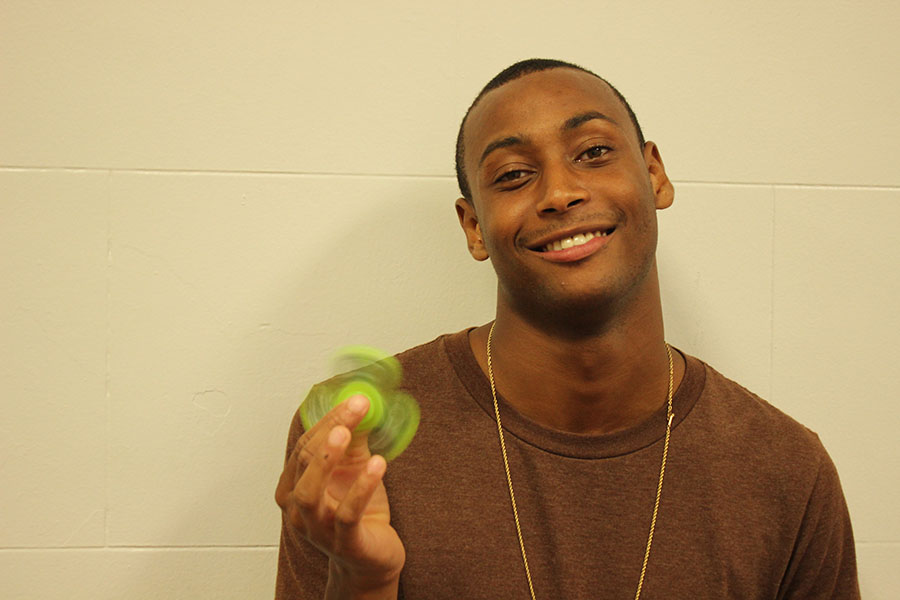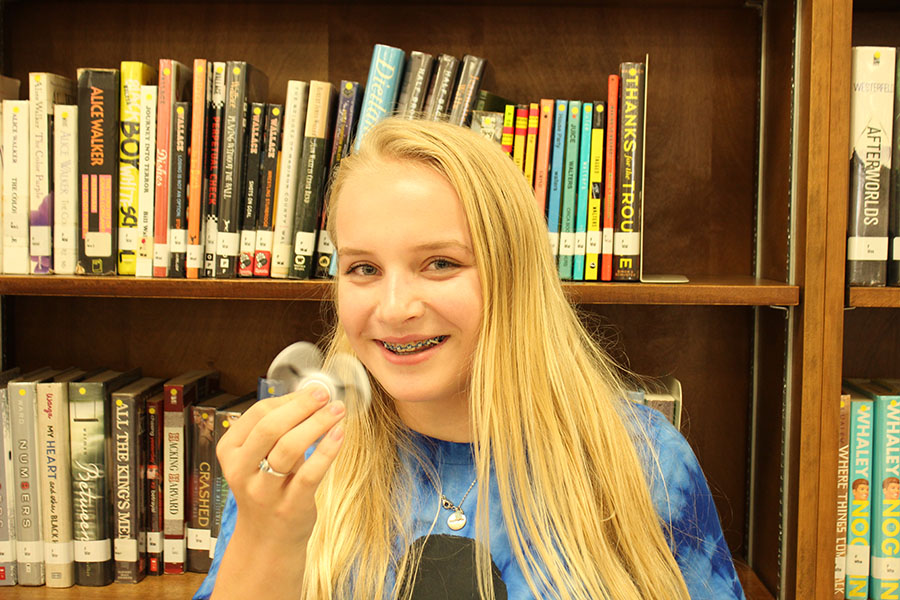Toy spins into spotlight
Every year, there is a trend of the moment, a product that quickly morphs from cool and interesting to an absolute necessity as it explodes in popularity. In fact, the fidget spinner, the latest trend in our popular culture’s spotlight, originates from rather humble, unique beginnings. Created to allow the user a way to release distracting “fidget” urges, and improve focus, the fidget spinner was originally intended for kids suffering from ADHD (Attention Deficit Hyperactivity Disorder) and autism; both disorders presenting symptoms such as an uncontrollable compulsion to fidget, which the product claims to help with.
“I have ADHD, and using the fidget spinner does help me do my homework without getting distracted,” sophomore Kacie Lavender said.
However, it did not take long before the toy spread from outside its target audience. Part of this versatility probably results from the cheap and portable nature of the fidget spinner, making the product both customizable and collectable.
“I have three fidget spinners, and two are from Spain,” senior Maddie Robinson said. “I like having a few different types.”
Fidget spinners come in all shapes and sizes, and are made of a multitude of materials. They can range from the basic plastic model, to more expensive and advanced toys, some even lighting up.
As it has become a product of entertainment rather than treatment, there has been some question of whether fidget spinners present more of a problem than a solution for distraction prone students. Recently, scientists have come out against the supposed qualities of the toy, stating that there’s no conclusive evidence that fidget spinners have any measureable impact on ability to focus.
This has prompted many schools to ban the use of fidget spinners. According to the Washington Post, schools in more than eleven states have enacted such a ban. Plant administration has not made any moves to follow in these school’s footsteps, but that could change if use of the product becomes a classroom disruption.
“Fidget spinners shouldn’t be banned in schools because they help kids with ADHD,” junior Kelsey Stewart said.
“I think fidget spinners should be banned because people use them as a toy and just play around with them in class,” freshman Neena Moradiellos said.
The emersion of a controversy around the fidget spinner could further heighten its popularity. However, whether this little toy will continue to make a disproportionately large impact, or fade away with all the other trends lost to our popular culture’s minute attention span, is a mystery that remains to be solved.



